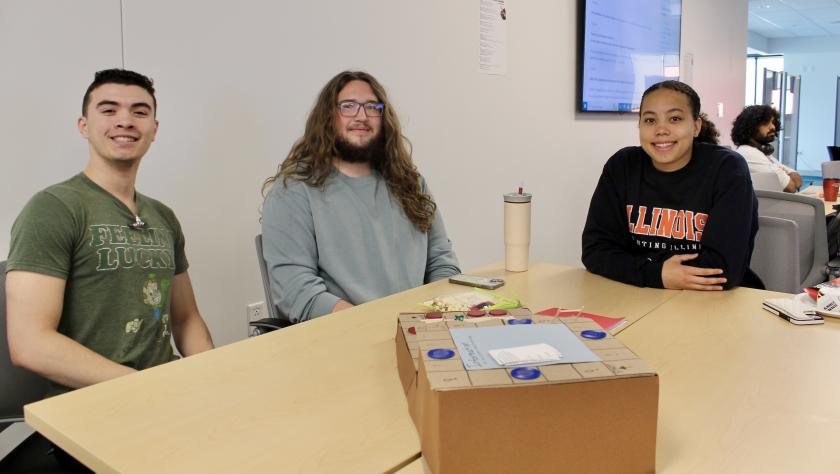As part of Teaching Associate Professor Judith Pintar's Introduction to Information Sciences (IS 101) course, students are tasked with creating board games that teach various aspects of information science targeted to particular audiences. The students presented their creations on April 19 at the Game Studies and Design Spring 2024 Showcase. In addition to the game demonstrations, the event featured posters and presentations by students and faculty.
The IS 101 students' games covered a range of information science topics–from internet safety to misinformation. Team members Sam Kitzke, Christina Jordan, Brendan McCarthy, and Antonio Iglesias created "Information Domination," a chance-heavy, trivia-based game with a runtime of twenty minutes that highlights the digital divide. The purpose of this game is to teach players about the gap between those who have access to modern information and technology resources, such as smartphones and computers, and those who have limited to no access.
According to Pintar, integrating game design into her curriculum is beneficial to elevating a student’s learning experience. "Games are cognitively engaging and board games are kinesthetically engaging as well," she said.

"It’s easy to access information and it’s easy to lose information, just like in real life," shared Kitzke. "One of the reasons why I took this course is because I wanted to learn more about how information travels and how to keep data secure."
In the course, students delve into the historical and contemporary context for understanding the role of information in society. Students learn to apply concepts and understand how skills are relevant to addressing significant information challenges of our day, including censorship, misinformation, algorithmic bias, ethical AI, and other important topics.
"As students take on the responsibilities of the information professions, they need to understand the context within which information–at every point in the information life cycle–is understood, managed, and communicated," said Pintar. "They need to understand that their actions create, shape, and design information–there are responsibilities associated with that, and their designs are also iterative and can be improved. All of these things game design teaches."
Pintar serves as the director of the Game Studies and Design Program. Her research and teaching interests include narrative design, game studies, and gameful pedagogies which she pursues through the Extended Literatures & Literacies Lab (EL3).